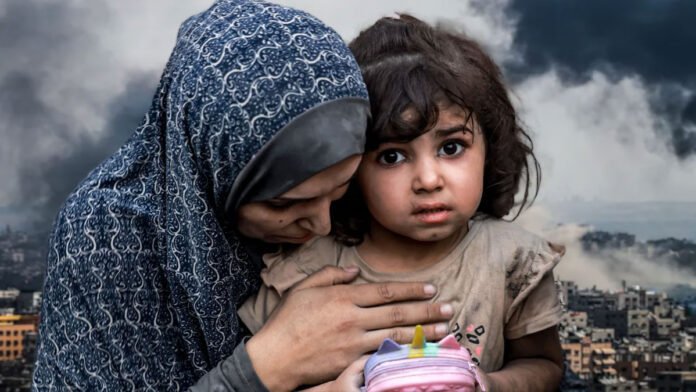What’s in a Number?
“Statistics are human beings with the tears wiped off.” Paul Brodeur once wrote. Nowhere is this more evident than in Gaza, where the grim arithmetic of war has become a battleground itself. A groundbreaking UK study published in The Lancet suggests we’ve been severely undercounting the dead.
The study, employing the rigorous “capture-recapture” methodology—a technique battle-tested in conflict zones worldwide—presents a haunting revelation: an estimated 64,260 Palestinians killed from traumatic injuries through June 2024. This figure towers 41% above the Gaza Health Ministry’s official count of 37,877. The implications are staggering.
This isn’t merely about correcting the record. Each overlooked death represents a person whose story remains untold, whose family’s grief goes unacknowledged in the official tallies. When we fail to count accurately, we fail to comprehend the true scope of human suffering.
The challenges of accurate counting in Gaza reveal a darker truth about modern warfare. As of December 2024, those seeking to document the truth have themselves become casualties: 160 journalists and media workers silenced, 120 academics killed, and 224 humanitarian aid workers—including 179 UNRWA employees—dead. International journalists face severe restrictions, creating an information vacuum where truth struggles to survive. While the Israeli embassy dismisses Gaza-sourced figures entirely, the UN continues to validate the Health Ministry’s methodology, highlighting how casualty counts themselves become battlegrounds.
However, The Lancet study suggests between 55,298 and 78,525 deaths—a range that speaks to both the statistical rigour of the analysis and the fog of war that complicates such counts. More disturbing still, 59% of documented casualties are women, children, and the elderly. These aren’t mere numbers; they’re a damning indictment of how modern warfare devastates civilian populations.

The October 7 Hamas attack that initiated this cycle of violence claimed approximately 1,200 Israeli lives and saw 251 hostages taken to Gaza—each victim representing an individual tragedy. Israel’s military response has resulted in 46,006 deaths, predominantly civilians, with women and children bearing the heaviest toll. These figures, while disputed, paint a picture of devastating asymmetry that raises profound questions about proportionality and the protection of civilian life under international law.
The IDF’s claim of “eliminating over 17,000 terrorists” stands starkly against the International Criminal Court’s November 2024 arrest warrants for Prime Minister Benjamin Netanyahu and former Defence Minister Yoav Gallant. These warrants, issued for the alleged use of starvation as a weapon of war, shift casualty figures from mere statistics to potential evidence of crimes against humanity. In the cold chambers of The Hague, these numbers will no longer be abstract—they will speak to lives lost and justice demanded.
Yet perhaps we are asking the wrong questions. While casualty figures dominate headlines, they overshadow the deeper, more urgent moral failures. As statisticians argue over methodology and governments spar over body counts, Western arms continue to flow into Israel, fueling the machinery of destruction. This transforms debates over numbers into a grotesque exercise in moral evasion. When did counting the dead take precedence over preventing their deaths? At what point does our obsession with precise figures become complicity in massacre? The true scandal lies not just in the grim arithmetic but in the relentless supply of weapons by Western nations that tout human rights even as they bankroll a military campaign that has turned Gaza into a graveyard.
The Lancet study doesn’t merely contest the official death toll—it indicts our collective conscience. Whether the true figure is 37,877 or 64,260, we crossed the threshold of moral catastrophe long ago. And yet, arms deals continue to be signed, corporations continue to profit, and politicians persist in hiding behind the veneer of bureaucratic language. Each shipment of weapons, each diplomatic manoeuvre shielding Israel from accountability, and each day of silence add countless more names to a death toll that should already have been enough to halt this tragedy.
In the end, what’s in a number? Everything—and nothing. Everything because accurate counts are essential for accountability, for history, for justice. Nothing because once we’ve reached such catastrophic levels of human suffering, the precise count becomes almost beside the point. The real question is: how many more must die before we say enough?
Support Independent Journalism Today
Our unwavering dedication is to provide you with unbiased news, diverse perspectives, and insightful opinions. We're on a mission to ensure that those in positions of power are held accountable for their actions, but we can't do it alone. Labour Heartlands is primarily funded by me, Paul Knaggs, and by the generous contributions of readers like you. Your donations keep us going and help us uphold the principles of independent journalism. Join us in our quest for truth, transparency, and accountability – donate today and be a part of our mission!
Like everyone else, we're facing challenges, and we need your help to stay online and continue providing crucial journalism. Every contribution, no matter how small, goes a long way in helping us thrive. By becoming one of our donors, you become a vital part of our mission to uncover the truth and uphold the values of democracy.
While we maintain our independence from political affiliations, we stand united against corruption, injustice, and the erosion of free speech, truth, and democracy. We believe in the power of accurate information in a democracy, and we consider facts non-negotiable.
Your support, no matter the amount, can make a significant impact. Together, we can make a difference and continue our journey toward a more informed and just society.
Thank you for supporting Labour Heartlands









